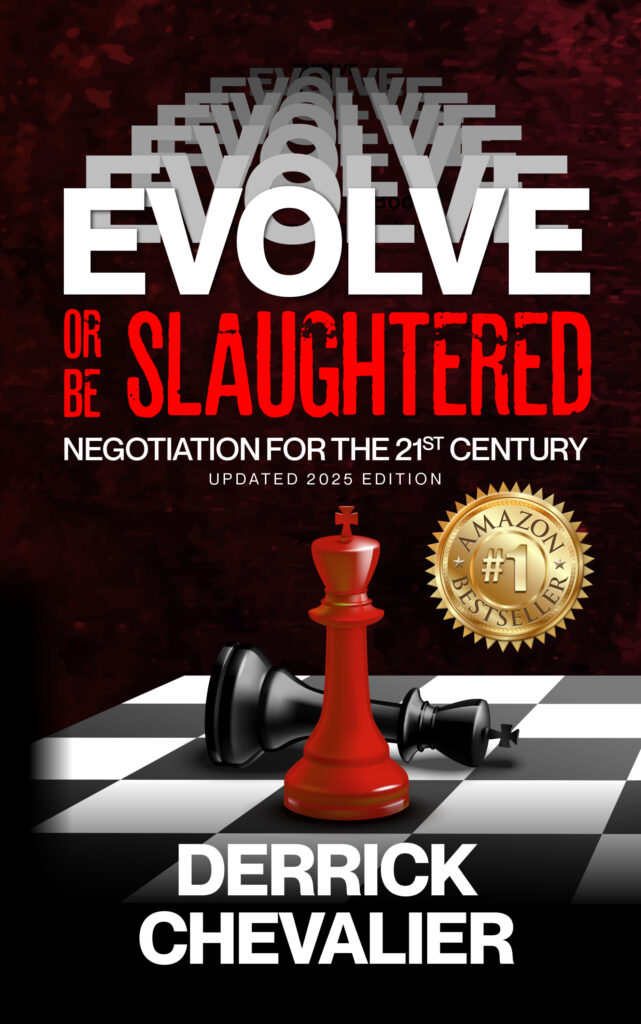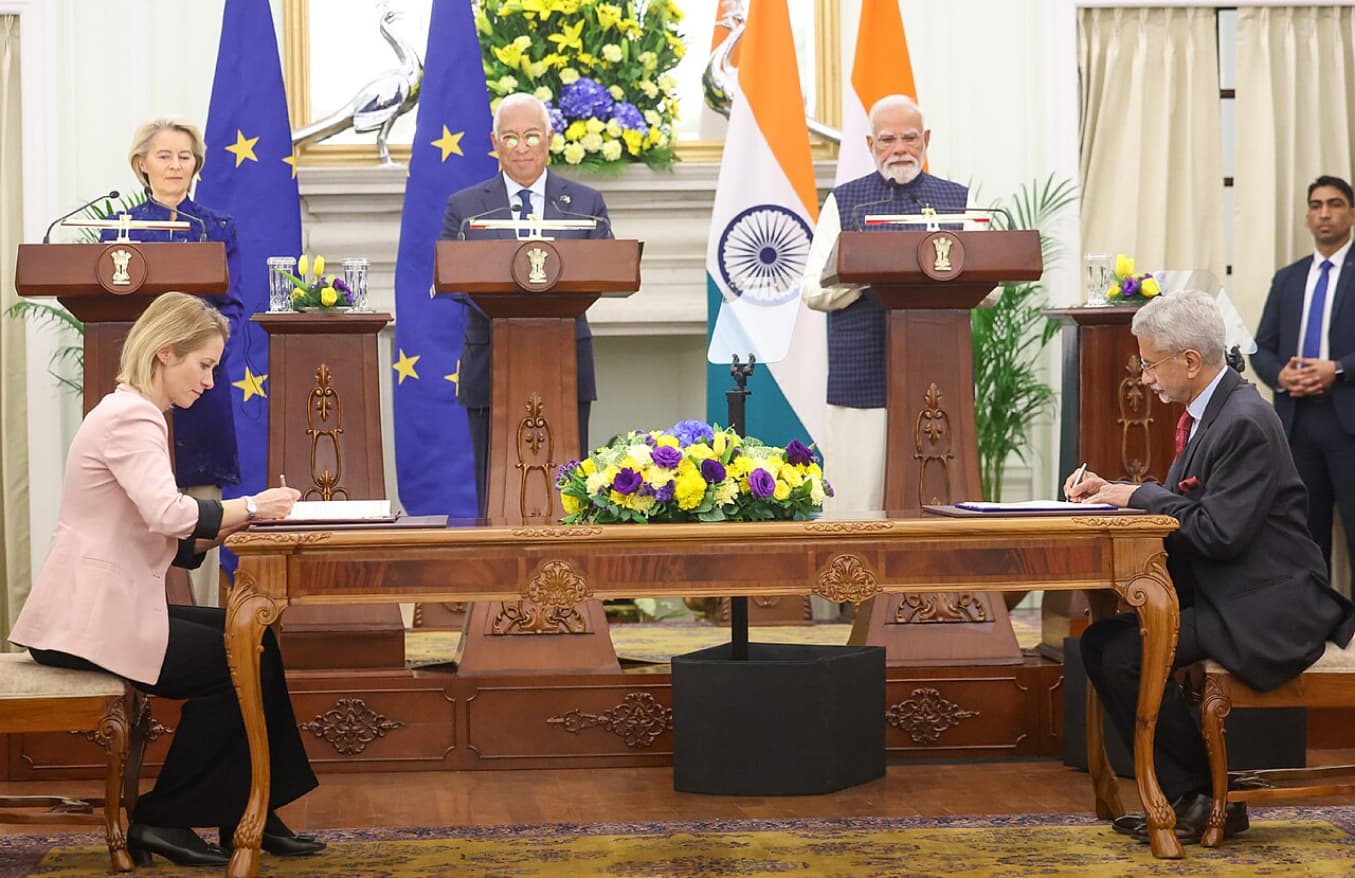Not all masterpieces are immediately recognized for their brilliance. Like Vincent Van Gogh’s revolutionary paintings that challenged artistic convention yet were initially rejected by critics, some business innovations face similar resistance before their true value emerges. At the intersection of art and science in high-stakes negotiation stands a visionary whose unconventional framework is redefining how business leaders approach the negotiating table.
Derrick Chevalier has never approached his work conventionally. As Executive Vice-President of Harrison-Chevalier, Inc., he doesn’t simply apply existing negotiation frameworks—he transforms them. From rejecting traditional models to pioneering a revolutionary approach that challenges the status quo, he has consistently pushed boundaries to forge connections between seemingly disparate disciplines: neuroscience, psychology, business strategy, and the art of human interaction.
From Mentorship to Mastery: Evolving Beyond Traditional Negotiation
After fifteen years of association with his primary mentor Dr. Chester Karrass—whom Chevalier describes as “the most prolific negotiation trainer of the 20th century”—and nearly three million miles of travel throughout the United States, Canada, Mexico, and beyond, Chevalier’s career reached a pivotal turning point. His team made the bold decision to give up their contract with Karrass to pursue what he calls “a higher calling.”
“During the two-year period that followed, we honored our non-compete agreement, and I began an exhaustive research project,” Chevalier explains. “I studied every significant thinker, influencer, and author of negotiation theory from Sun Tzu to the present day. What thinking, tactics, and strategies are still relevant today, and which would continue to be relevant throughout the 21st century? Where must the body of knowledge be updated given the vast evolutions in communication, technology, neuropsychology, human behavior, and business?”
This profound questioning led to the development of what is now known as the Comprehensive Negotiating Strategies Universal Framework (CNSUF™)—an approach that doesn’t replace traditional negotiation wisdom but enhances and evolves it for contemporary challenges. Yet like Van Gogh’s masterpieces that were initially dismissed, Chevalier’s framework has faced resistance from established negotiation theorists.
“CNSUF™ challenges their stories, their foundations, redefines terminology, and elevates tactics and strategies as no other negotiation framework has been able to do,” he notes. “Despite its enormous success for clients who have achieved unprecedented results, there is a reluctance to change or to evolve beyond the confines of traditional and contemporary thinking—even as AI and technology are moving at the speed of light.”
Inverting Traditional Negotiation: The Science of What We Don’t Know
What truly distinguishes CNSUF™ from established approaches is its fundamental inversion of negotiation philosophy. Where traditional frameworks focus on what negotiators know (or think they know) and what they want, Chevalier’s approach targets precisely the opposite.
“We pursue what we don’t know, who we don’t know, what our counterparts have not shared, who is impacting the negotiation that we are unaware of, and how we get those answers,” he explains. “We understand that we are not negotiating a problem or challenge—we are negotiating people. The problems are inanimate; what matters is how our counterparts are going to act or react to the questions and processes we employ.”
This perspective shift transforms the negotiating process from a predictable exchange of positions to a dynamic exploration of hidden information. Rather than developing strategy based solely on available data, CNSUF™ practitioners make decisions based on what remains concealed—the intelligence their counterparts are unwilling to share.
“We may not know WHAT we don’t know,” Chevalier notes, “but we know that the counterpart isn’t sharing what might be vital intelligence from their perspective. That reluctance, that refusal then dictates the mode of negotiation.”
Unlike contemporary negotiation texts that rely heavily on storytelling and examples that “evaporate in value over time,” Chevalier’s approach uses a quantitative methodology combined with elements from neurosciences, psychology, business, politics, and social science to address real-world challenges. This integration creates what he describes as “a continuously evolving, living, breathing portrait of possibilities and principles.”
The Leadership Challenge: The Perils of Past Success
Through his work with C-level executives globally, Chevalier has identified a common pattern that threatens even the most accomplished leaders: the inability to evolve beyond what has previously worked.
“If a leader has been successful, they tend to stay with what got them where they are—they mistake their past behavior and experience for skill,” he observes. “There is a huge difference between having business experience and having negotiation skill.”
This stagnation becomes particularly dangerous when leaders surround themselves with people who either think precisely as they do or are so committed to pleasing them that they offer no meaningful challenge to established thinking.
“Many leaders are willing to fall on the sword of their own perspective rather than elevate or extend their thinking,” Chevalier notes. “They look at ‘The Starry Night’ and only see paint on a canvas until their counterpart uses that stagnation to bury or eliminate them altogether.”
The remedy, according to Chevalier, isn’t balance but harmony. “There is no such thing as ‘balance’ in business or in life. Balance is impossible because we cannot control all the factors necessary to achieve it,” he explains. “Instead, I seek harmony. Harmony is the co-existence of divergent notes in a chord. Things are rarely going to be perfect, and as John Mayer says, ‘Bad things never have good timing,’ so the question isn’t ‘what if things go wrong?’ The question is ‘What do we do to resolve a bad note when things go wrong?’”
Drawing inspiration from Bruce Lee’s philosophy to “be like water,” Chevalier’s CNSUF™ provides guidance for negotiators to achieve harmony in business and life. “And when that fails,” he adds with characteristic candor, “CNSUF™ provides tenets and guidelines to literally obliterate the opposition when it is warranted or necessary to do so.”
Transformational Education: The Art of Cognitive Disruption
Chevalier’s workshops are described as transformational—a term that seems apt given his approach to training. Rather than delivering standardized content, he approaches each workshop as a unique opportunity to challenge, expand, and elevate participants’ thinking.
“We encourage, push, frustrate, entertain, educate, inspire, and expand the thinking and potential of every attendee, as we are educated, enlightened, and evolved by the wisdom and ‘genius of the group,’” he explains. “Nobody in a room is smarter than the collective intelligence and experience of everybody in a room.”
This collaborative approach creates a multisensory learning environment that includes audio, video, music, writing, listening, practice, and Q&A—all tailored to each individual event. The result is an experience that ignites “new commitments, new behaviors, and thinking” among participants.
Sometimes, these transformations occur in unexpected ways. Chevalier recalls a particularly memorable keynote in Boaz, Alabama, where the initial reaction to his appearance revealed deeply held assumptions.
“I walked up to a random person and asked where I might find the event coordinator. The gentleman assumed I was a waiter or employee of the hotel,” Chevalier remembers. “When I said ‘Derrick Chevalier,’ he restrained his obvious surprise. ‘The speaker?’ he asked. ‘Yes,’ I said. And although there were dozens of people in the crowded ballroom, you could hear a pin drop within thirty seconds. Dead silence as people saw a brown-skinned, blue-eyed, multiracial man greet the coordinator and then walk up onto the stage.”
Yet within half an hour, that same group was “loudly clapping, laughing, and deeply engaged.” By the end of the day, Chevalier had received numerous invitations to people’s homes for dinner.
“What I learned is that people, even very different people, have more in common with one another than not, and that excellence can often overcome resistance,” he reflects. “The other important lesson has been this: people don’t really know who they are or what they think until they are faced with an opportunity to go beyond their limitations. That’s when people really discover who and what they are as human beings and as negotiators.”
The Reality of Human Nature in Business Relationships
Despite his optimism about human potential, Chevalier maintains a clear-eyed view of human nature in business negotiations. This perspective was reinforced during the COVID-19 pandemic when a long-standing client invoked force majeure to escape contractual obligations—despite their contract containing specific protections against such events.
“We assumed that our long-term professional and personal relationship, along with the enormous success they had experienced using our consulting and training services, ensured that they would honor the agreement,” Chevalier explains. “They didn’t. They used the length and depth of our relationship as the rationale for ignoring the underlying integrity and ethics of the agreement, despite declaring that H-C, Inc. was not only a consultant but a full member of their ‘team.’”
This experience reinforced two critical lessons: first, that personal relationships should rarely dictate business negotiation strategy, and second, that “people don’t know who they are, what they believe, or what they will do ethically, morally, or in business until they have a choice and until there are consequences for the choices in front of them.”
“Our experience over the decades has been that people will most often error on the side of what is best for them, regardless of what they said they would do before they were faced with a consequence that wasn’t in their own best interest,” he notes.
Beyond Theory: The Power of Relentless Action
For professionals seeking to master negotiation in today’s fast-paced environment, Chevalier offers characteristically direct advice: “‘Stop trying’ and get into ‘Relentless Action.’”
“Trying is a synonym for inertia,” he explains. “We are either doing something, or we are not doing something, both are separate from whether we achieve what we are working toward. And there is no question but that taking action, especially purposeful action, is better than doing nothing or being stuck ‘trying.’”
Rather than measuring success by external standards, he encourages rising professionals to “develop your own sense of what makes you relevant and valuable in the world.” Most importantly, he emphasizes excellence: “Seek to become an authority in your field, work smarter than your counterparts, and develop a high level of negotiation skills and knowledge.”
This commitment to continuous improvement extends to Chevalier’s own guiding principles. When asked about the one negotiation principle he never compromises on, he challenges the premise of the question itself, referencing a popular negotiation book titled “Never Split the Difference” by Chris Voss.
“‘NEVER say never,’” Chevalier asserts, “as doing so guarantees failure in any instance where the thing someone told you never to do is the exact thing you need to do to achieve a desired result, or in some cases any result other than deadlock.”
The Future: Making CNSUF™ a Masterpiece of Business Strategy

After making CNSUF™ exclusively available to clients for fifteen years, Chevalier is now focused on sharing it more broadly. His Amazon #1 bestselling book, “EVOLVE OR BE SLAUGHTERED: Negotiation For The 21st Century,” serves as what he calls “a foundational reference for crafting outcomes that have never been possible.”
People will most often error on the side of what is best for them, regardless of what they promised before facing consequences
“It isn’t the type of book you ‘read’ and put down,” he explains. “It is more akin to a textbook for thriving than a book of stories about how effective CNSUF™ is for some other person or company.”
Looking ahead, Chevalier envisions that “CNSUF™ will become ‘The Starry Night’ of negotiation, that it will continue to evolve and impact the greater body of knowledge in business and in life.”
By continuing to challenge conventional thinking about negotiation, Chevalier is painting a new vision of business leadership—one that recognizes the artistic nature of human interaction while grounding it in rigorous research and proven results. For those willing to see beyond the conventional canvas of business strategy, his work offers a glimpse of what might be possible when negotiation becomes not just a skill but an art form.
“We aren’t looking for people who want to reproduce their past,” Chevalier concludes. “We are looking for people who want to blow the doors off their limitations, who want to excel to the highest levels within their business or profession. People who are willing to endure the pain of change to become the masters of their destiny, painters of great results that change the world around them and the person within.”






